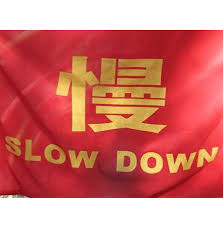
China's export growth slowed in March as the Ukraine war reduced global demand, wile imports declined amid evidence that widespread anti-Covid lockdowns had hurt internal spending, according to a report from Reuters based on a survey of economists.
According to a Reuters poll of 19 analysts, exports are expected to rise 13% in March compared to the same month a year ago, compared to 16.3 percent growth in the January-February period.
Imports were predicted to be 8% higher in March than a year ago, down from 15.5 percent rise in the first two months of the year, according to the survey. According to observers, the slowdown in growth was caused in part by sluggish domestic demand and industrial disruptions, both of which were triggered by persistent Covid-19 outbreaks.
The Chinese economic data for January and February is frequently combined to reduce biases due by the Lunar New Year holiday's fluctuating timing.
According to the poll, economists forecast a $22.4 billion trade surplus in March, up from $13.8 billion a year ago.
While Covid outbreaks and resulting limitations in major manufacturing areas like Jiangsu, Guangdong, and Shanghai have likely hampered export development, analysts say the Ukraine conflict is stifling global economic recovery and hampering logistics.
In March, the Caixin manufacturing Purchasing Managers' Index showed contraction, with a sub-index of new export orders falling to a 22-month low.
Container traffic at eight main Chinese ports increased 1.8 percent year on year in March, down from 2.8 per cent in February, according to figures from the domestic port association.
China's efforts to contain the country's greatest Covid-19 outbreaks in two years have slowed activities in a number of locations, forcing enterprises ranging from Apple supplier Foxconn to automakers Toyota and Volkswagen to halt operations in March.
China, the world's largest manufacturer, has been facing a rising risk of recession since mid-March, according to Nomura. According to the report, 45 cities had imposed complete or partial lockdowns as of Monday, affecting 26.4 percent of China's population and 40.3 per cent of its GDP.
Factory-gate inflation surged faster than predicted in March due to tight supply, prompting some analysts to wonder how far the central bank will be able to loosen monetary policy.
Despite the economic difficulties caused by the virus, several economists foresee more policy easing. However, analysts at ANZ Research stated in a report on Tuesday that the only option to strengthen the economy was to loosen restrictions on the real estate sector.
(Source:www.fxempire.com)
According to a Reuters poll of 19 analysts, exports are expected to rise 13% in March compared to the same month a year ago, compared to 16.3 percent growth in the January-February period.
Imports were predicted to be 8% higher in March than a year ago, down from 15.5 percent rise in the first two months of the year, according to the survey. According to observers, the slowdown in growth was caused in part by sluggish domestic demand and industrial disruptions, both of which were triggered by persistent Covid-19 outbreaks.
The Chinese economic data for January and February is frequently combined to reduce biases due by the Lunar New Year holiday's fluctuating timing.
According to the poll, economists forecast a $22.4 billion trade surplus in March, up from $13.8 billion a year ago.
While Covid outbreaks and resulting limitations in major manufacturing areas like Jiangsu, Guangdong, and Shanghai have likely hampered export development, analysts say the Ukraine conflict is stifling global economic recovery and hampering logistics.
In March, the Caixin manufacturing Purchasing Managers' Index showed contraction, with a sub-index of new export orders falling to a 22-month low.
Container traffic at eight main Chinese ports increased 1.8 percent year on year in March, down from 2.8 per cent in February, according to figures from the domestic port association.
China's efforts to contain the country's greatest Covid-19 outbreaks in two years have slowed activities in a number of locations, forcing enterprises ranging from Apple supplier Foxconn to automakers Toyota and Volkswagen to halt operations in March.
China, the world's largest manufacturer, has been facing a rising risk of recession since mid-March, according to Nomura. According to the report, 45 cities had imposed complete or partial lockdowns as of Monday, affecting 26.4 percent of China's population and 40.3 per cent of its GDP.
Factory-gate inflation surged faster than predicted in March due to tight supply, prompting some analysts to wonder how far the central bank will be able to loosen monetary policy.
Despite the economic difficulties caused by the virus, several economists foresee more policy easing. However, analysts at ANZ Research stated in a report on Tuesday that the only option to strengthen the economy was to loosen restrictions on the real estate sector.
(Source:www.fxempire.com)





